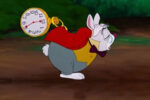In Dutch you don’t hear the difference between an adverb and an adjective. In French it does matter. But that’s no reason to get gray hairs.
An adjective is an adjectif, an adverb is an adverbe. The difference is grammatical, and once you figure that out, you can work with it in French as well.
Adjective
An adjective (adjectif) tells something about a noun.
So: That’s a big dog. Here ‘big’ is the adjective that says something about the noun ‘dog’. You recognize a noun because in Dutch you can put de, het or a before it (or in French le/la/l’ or un/une)
In French that sentence becomes: Il est un grand chien.
More examples:
Une jolie fille (a beautiful girl)
Le gift moche (an ugly gift)
La fleur petite (the little flower)
An adjective changes along with the noun in French:
Un joli garcon. Lesson gifts moches. Les fleurs petites.
advertisement
An adverbe (adverb) tells something about the verb, an adjective or about another adverb.
So: You did a good job. Here ‘good’ is the adverb, which says something about the verb ‘worked’. You can often find the adverb by asking a “how” question: How did you work? – Good.
In French: Tu as bien travaillé.
If there is 1 verb in a sentence, put the adverb after it.
Elle travaille bien. (She works well)
Elle m’aide rapidement. (She helps me quickly)
Place in the sentence
With several verbs it depends on the amount of syllables where you put the adverb. Does the adverb have 1 or 2 syllables? Then you put the adverb between the auxiliary verb and the past participle:
Elle m’a bien aide. (she helped me a lot)
Does the adverb have 3 or more syllables? Then you put the adverb after the past participle:
Elle m’a aide rapidement . (she helped me quickly)
If the adverb says something about an adjective or another adverb, put the adverb in front of it:
Il est vraiment gentil. (he is very nice)
Ils jouent très bien. (they play very well)
Forming the adverb
You make the adverb as follows:
Take the feminine singular form of an adjective.
Add -ment to this.
So:
ouvert> overture
vif> vivement
complete> completion
heureux> heureusement
French wouldn’t be French if there were no exceptions to the rule.
If the adjective ends in a vowel, the -e you add to the feminine form is dropped. So: ask> request.
Some shapes are completely irregular, for example:
receipt> bien
gentle> gentiment
mauvais> mold
meilleur> mieux






